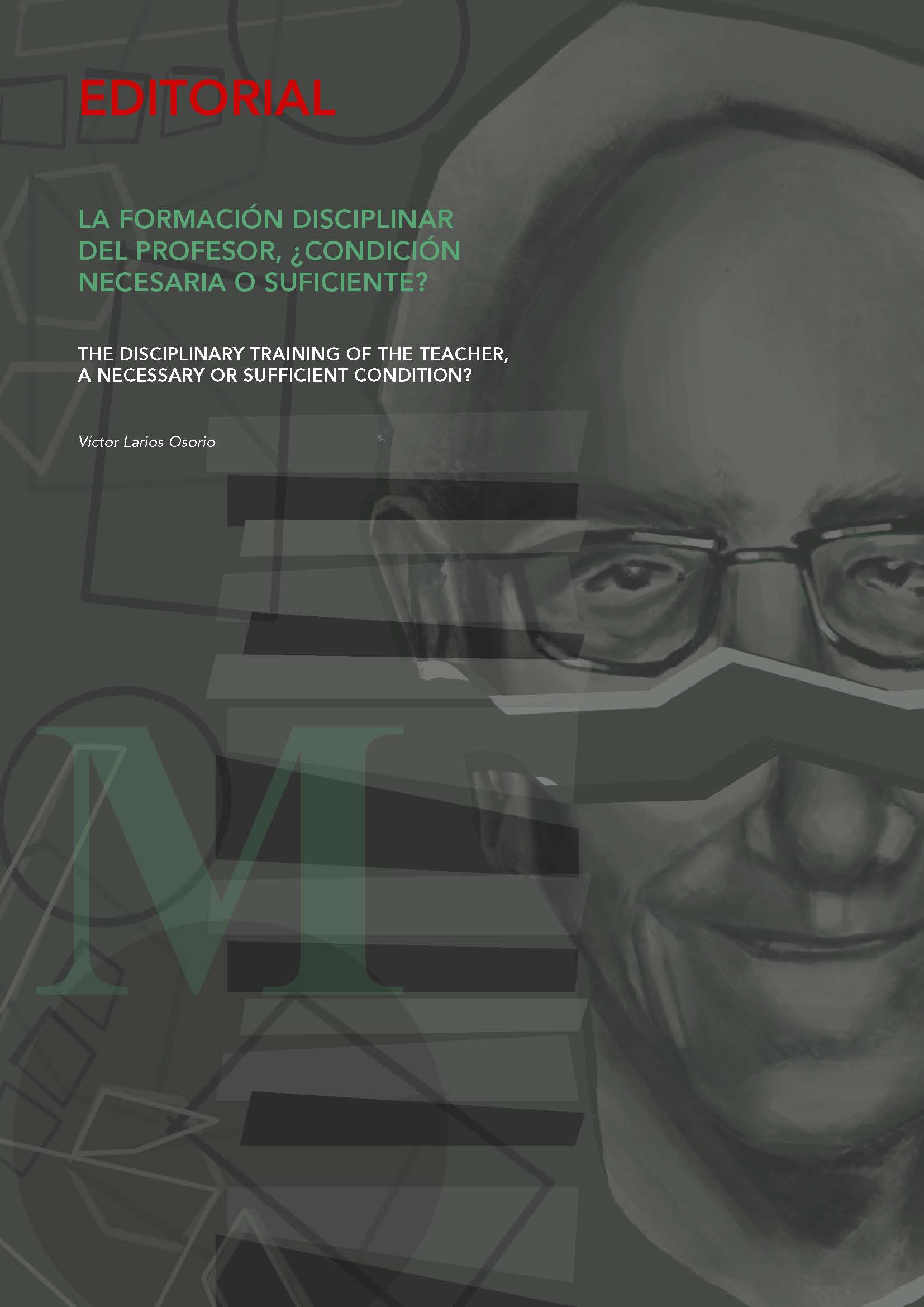Resumo
Neste texto é apresentada uma reflexão sobre a complexidade da formação docente em função dos conhecimentos e habilidades que devem ser aprendidos e desenvolvidos para realizar este trabalho profissional. Se aborda principalmente o caso do relacionado com os aspectos disciplinares, mas se mostra que desde a prática y os modelos teóricos, aunque são necessários, não são suficientes para participar no processo de enseñanza adequadamente.
Referências
Coll S., C. y Sánchez, E. (2008). El análisis de la interacción alumno-profesor: Líneas de investigación. Revista de Educación, (346), 15-32.
Fischbein, E. (1994). Intuition in science and mathematics. An educational approach. Dordrecht, Países Bajos: D. Reidel Publishing Company.
Godino, J. D., Batanero B., C. y Font M., V. (2007). The ontosemiotic approach to research in mathematics education. ZDM. The International Journal on Mathematics Education, 39(1-2), 127-135.
Godino, J. D., Giacomone, B., Font M., V. y Pino-Fan, L. R. (2018). Conocimientos profesionales en el diseño y gestión de una clase sobre semejanza de triángulos. Análisis con herramientas del modelo CCDM. Avances de Investigación en Educación Matemática, (13), 63-83. https://doi.org/10.35763/aiem.v0i13.224
Grugnetti, L. y Speranza, F. (1999). General reflections on the problem history and didactic of mathematics. Philosophy of Mathematics Education Journal, (11). https://education.exeter.ac.uk/research/centres/stem/publications/pmej/pome11/art5.htm
Hill, H. C., Ball, D. L. y Schilling, S. G. (2008). Unpacking pedagogical content knowledge: Conceptualizing and measuring teachers’ topic-specific knowledge of students. Journal for Research in Mathematics Education, 39(4), 372–400. https://doi.org/10.5951/jresematheduc.39.4.0372
Kahneman, D. (2022). Pensar rápido, pensar despacio. México, México: Penguin Random House Grupo Editorial.
Koehler, M. J. y Mishra, P. (2009). What is technological pedagogical content knowledge? Contemporary Issues in Technology and Teacher Education, 9 (1), 60-70.
Larios O., V., Spíndola Y., P. I., Font M., V. y Giménez R., J. (2013). Características del profesorado de Matemáticas. Una propuesta. En V. Larios O. y A. J. Díaz Barriga C. (edits.), Las prácticas docentes en Matemáticas en el Estado de Querétaro (págs. 233-271). Querétaro, México: Editorial Universitaria - Universidad Autónoma de Querétaro.
Shaw, G. B. (2008). Maxims for revolutionists. Recuperado el 21 de abril de 2023, del Project Gutemberg: https://www.gutenberg.org/ebooks/26107
Shulman, L. S. (1987). Knowledge and teaching: Foundations of the new reform. Harvard Educational Review, 57(1), 1-22.
Shulman, L. S. (1986). Those who understand: Knowledge growth in teaching. Educational Researcher, 15(2), 4-14. https://doi.org/10.3102/0013189X015002004

Este trabalho encontra-se publicado com a Licença Internacional Creative Commons Atribuição-NãoComercial-CompartilhaIgual 4.0.
Direitos de Autor (c) 2023 PädiUAQ


